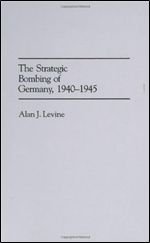Many historians believe that the movement of Jacob's family into Egypt may have coincided with (occurred at the same time as) the Hyksos invasion. If so, it is perhaps easy to understand how the Egyptians came to despise the Israelites, as they later did. Thus by the beginning of the Book of Exodus (which means “to go out from a place”), the Israelites' situation had become very different than it was in the time of Joseph. Fearing their growing numbers, the Egyptians had made slaves of them, and the pharaoh set out to kill all boys born to the people of Israel.
But a woman from the tribe of Levi (LEE-vie) devised a plan to save her own son. She put him in a basket made of reeds and let it float down the Nile past the pharaoh's palace. The pharaoh's daughter found the basket and decided to adopt the boy, who eventually came to live in the pharaoh's house. She named the child Moses, which comes either from a Hebrew word meaning “to draw out” (of the water) or from an Egyptian word meaning “is born.”
The boy would grow up to become Israel's greatest leader, the true founder of the Israelite nation. But he was raised as an Egyptian, and he might have had an easy life if he had not grown concerned about the harsh treatment of his people. When he saw an Egyptian beating an Israelite, he killed the Egyptian and had to flee to the land of Midian (MIH-dee-uhn), a desolate place on the Arabian Peninsula.
Moses lived in Midian for a long time, taking a wife and starting a family. The Book of Exodus says that one day while he was tending a flock of sheep for his father-in-law, God appeared to him in a burning bush and ordered him to go lead the Israelites out of Egypt. Moses was extremely reluctant to do this, but God promised that he would be with him, so finally he returned to Egypt. There he enlisted the help of his brother Aaron, and together they went to the pharaoh and demanded the release of the Israelites. This must have taken a great deal of bravery, because Moses did not yet have any great power. The pharaoh's response was to make conditions even worse for the people of Israel.
Moses and Aaron kept going back to the pharaoh, and each time the pharaoh refused to yield. Therefore God sent ten plagues (PLAYGZ) against Egypt. First he turned the Nile into blood, and then he infested the land with frogs, gnats, and flies in turn. He killed livestock, or farm animals; caused boils, or intense sores; sent a rain of hail; brought another infestation in the form of locusts; and turned daytime into darkness. Each time, the pharaoh's resistance simply increased.
Then came the tenth and worst plague, the killing of all the Egyptians' firstborn sons—just as the earlier pharaoh had tried to kill the sons of the Israelites. On the night when this happened, the Israelites protected themselves from the angel of death by placing the blood of a lambs on the frames of their front doors; then they ate a solemn feast. This was called the Passover. Jews still celebrate it each year to commemorate the way that God passed over their houses and did not take their sons.
The pharaoh was not so fortunate. When he lost his firstborn son, he finally gave in. Moses, by now recognized as the leader over all the Israelites, led them out of Egypt. The Bible reports that when they came to the Red Sea, God parted the waters and let them walk on dry land; but when the pursuing army of the pharaoh—who had meanwhile changed his mind—tried to follow them, the sea swallowed them up.




 World History
World History









